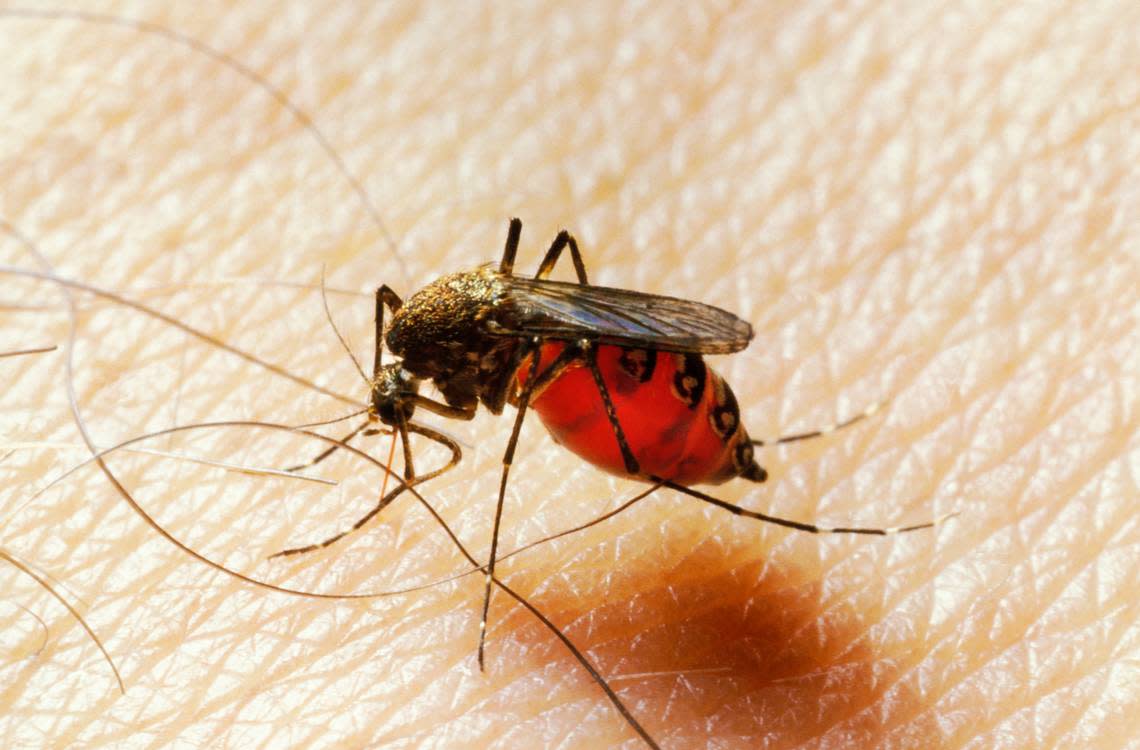Can mosquito spray services kill good bugs, like pollinators? We asked the experts
Not-so-hot take: mosquitoes are the worst.
They’re also the deadliest animal on the planet, the Centers for Disease Control and Prevention says. Vector-borne diseases, including those transmitted by mosquitoes, cause more than 700,000 deaths per year.
They can also infect dogs and cats with heartworms, and they drive us from our yards and make us miserable every summer.
So it’s no surprise that more and more people are turning to mosquito control companies that offer services — including spraying — to wipe out those blood-sucking monsters.
But here’s a question we hear a lot: Do the services that rid our yards of mosquitoes also kill the good insects we need, like bees and butterflies?
For our Asked & Answered series, The N&O chatted with Michael Reiskind, associate professor of entomology at N.C. State University, to get answers.
Do mosquito sprays kill pollinators and other insects?
Yes. Insecticide kills everything, not just mosquitoes.
“There’s nothing that’s commonly used that’s specific to mosquitoes,” Reiskind said.
“What’s actually sprayed is a general insecticide, so it kills all insects. If you spray a bumblebee, it kills the bumblebee. If you spray a monarch butterfly, grasshopper, ladybug — it’s going to kill them all.”
Even “green products,” which are plant-derived chemicals advertised to be better for plants and wildlife, are still intended to kill mosquitoes and other insects.
“We don’t know much about how effective they are for mosquito control, but they’re still general insecticides, meaning they kill not only mosquitoes but any other insects it gets in touch with,” he said.

Can you spray mosquito repellent and still keep bees & butterflies safe?
Yes. While the insecticide doesn’t spare certain insects, you can spray carefully.
By avoiding areas where pollinators and other important bugs frequently go, you can keep your yard (mostly) mosquito free and pollinator friendly at the same time.
“By regulation, they’re not supposed to spray flowering plants where pollinators may be found. They’re not supposed to spray anything people may eat either, and that takes into account the wind,” Reiskind said.
“If your neighbor has a vegetable garden and spraying your yard might wind up spraying their yard too, because the wind carries the insecticide over, the applicators are not supposed to spray.”
Joey Osbourne, founder of the North Carolina-based mosquito control company Mosquito Authority, previously told The N&O his company follows all rules for applying products targeting adult mosquitoes in a way that minimizes impact, including avoiding blooming or flowering plants.
Is it OK to kill mosquitoes?
Yes. There’s no real reason to save mosquitoes and keep them around, Reiskind said.
“There really aren’t many benefits to keeping them in your backyard.
“The ones in the Triangle that bother people are invasive species, and they’re not doing a whole lot of good in the world. If it was easy to get rid of them without a huge environmental cost, we should.”
How to keep mosquitoes out of your yard and avoid bites
We talked to experts and consulted the CDC to learn how to stay safe — or at the very least, diminish those itchy, swollen bumps. Here’s what we learned:
▪ Dump standing water: Mosquitoes lay their eggs in standing water. By dumping this water frequently, you can mitigate the number of mosquitoes in your yard. At least once a week, dump dog bowls, tarps and anything else that collects water.
▪ Use EPA-registered insect repellents: DEET is the most common and effective repellent, Reiskind said.
Find a list of insect repellents using the EPA’s search tool at epa.gov/insect-repellents.
▪ Cover your skin: Wear clothing that covers hands, arms, legs and other exposed skin. You can also wear hats with mosquito netting to protect the face and neck.
▪ Use a fan: Mosquitoes hate flying against wind, so a simple high-powered fan can add some protection when sitting outside, Reiskind said.
Learn more at cdc.gov/mosquitoes.
The N&O’s Brooke Cain contributed to this report.
Triangle Asked & Answered: What do you want to know?
Have a question about something in our community? The News & Observer’s Service Journalism team wants your questions for our Triangle Asked & Answered series. Reach out to us by filling out this form or by sending an email to ask@newsobserver.com.
7 ways to avoid (or at least diminish) mosquito bites this summer, from an NC State expert
Raleigh is closing a recycling center because of illegal dumping. Here are alternatives
How to identify (and avoid) NC’s venomous cottonmouth (aka water moccasin) snake
